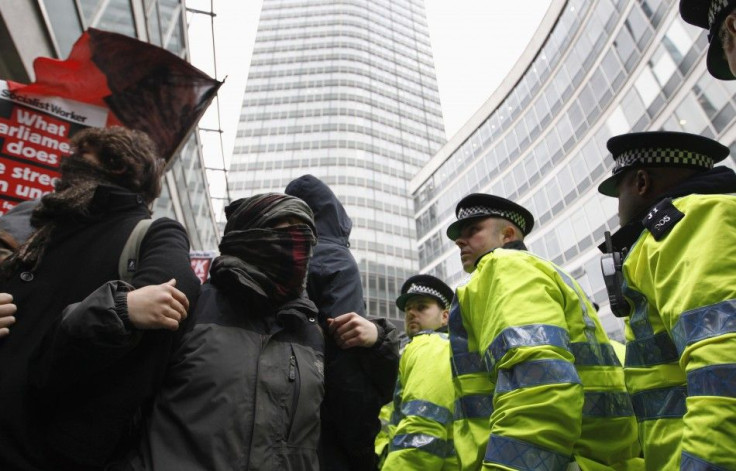Analysis: Will UK strike turn violent?

A 24 hour labor strike will close many British institutions on June 30, as an expected 750,000 workers voice their displeasure with their governments planned budget cuts.
The union strike -- which is a collaboration between the National Union of Teachers, the Association of Teachers and Lecturers, the University and College Union, and the Public and Commercial Services Union -- is the latest movement against the UK's deficit-busting measures .
The four unions are joining forces to organize mass demonstrations all across the nation, and say that if negotiations don't go well, they are prepared to stage more strike throughout the summer and fall.
The unions are planning for non-violent demonstrations, but recent history dictates the peace will not be sustained. More often than not, a small few use the rallies as an excuse to cause trouble and vent their frustrations violently.
Last week, a rally against a similar austerity program in Greece took a violent turn when masked youths began throwing rocks and Molotov cocktails at national police officers. The rally started as a peaceful, 20,000 person-strong march to the parliament building, but ended with police shooting teargas into the crowd.
Like the June 30 UK rally, the protests were linked to a 24-hour labor strike organized by Greek unions. Twelve people were arrested in Athens.
Perhaps more telling, a similar organized protest in London in March erupted in a fight between self-proclaimed anarchists and the police. During a nearly 500,000-person march from Piccadilly Circus to Hyde Park to Parliament, isolated clashes between with the police lead to 214 arrests and 31 injured police officers, one of whom needed immediate medical attention.
Police fired tear gas on the anarchists, who in turn threw rocks, bottles, paint and light bulbs filled with ammonia at the officers.
On Piccadilly, across the street from the Ritz hotel, people wearing scarves and t-shirts over their faces broke the windows of an HSBC bank and a Starbucks, while spray-painting everything they could find, including telephone booths, mail boxes, storefronts and even the street itself. The instigators also stormed and occupied luxurious department store Fortnum & Mason and a number of clothing stores on Oxford Street.
The main TUC march has been going well. We have had more than a quarter of a million people with hardly any problems, Police Commander Bob Broadhurst told CNN at the time.
Unfortunately we have had a group of approximately 500 criminals committing some disorder ... and scaring the public who are trying to shop. That has been concerning but we are on top of it.
Earlier in the year, student protests against a tuition hike also turned a vicious corner, where again students and police clashed on the street. Windows were broken in the British capital, and Prince Charles' Rolls Royce was assaulted while he drove down Regent Street.
As students have pledged to join their professors and teachers during the day-long strike on June 30, the chance that the demonstrations will feature violence must be increased. The anonymity and power of mobs stokes the violent tendencies in many protesters.
This has been witnessed even at joyous demonstrations, such as the spontaneous celebrations that occur when home teams win championships. In 2004, when the Red Sox beat the Yankees in the American League play-offs, thousands of young people took the streets of Boston. In what should have been a happy evening, students near the Northeastern campus began overturning cars. Police opened fire on the crowd with rubber bullets, resulting in the death of a female student.
Violence often makes governments less willing to negotiate with protestors. As England, along with other European countries such as Greece, Spain and Hungary, settles into a summer that will surely be rife with popular demonstrations against government economic plans, they will have to prepare for the worst. And the unions, who want to see their demands met, will have to speak loudly enough to be heard over the sound of police sirens and shattering glass.
© Copyright IBTimes 2024. All rights reserved.





















